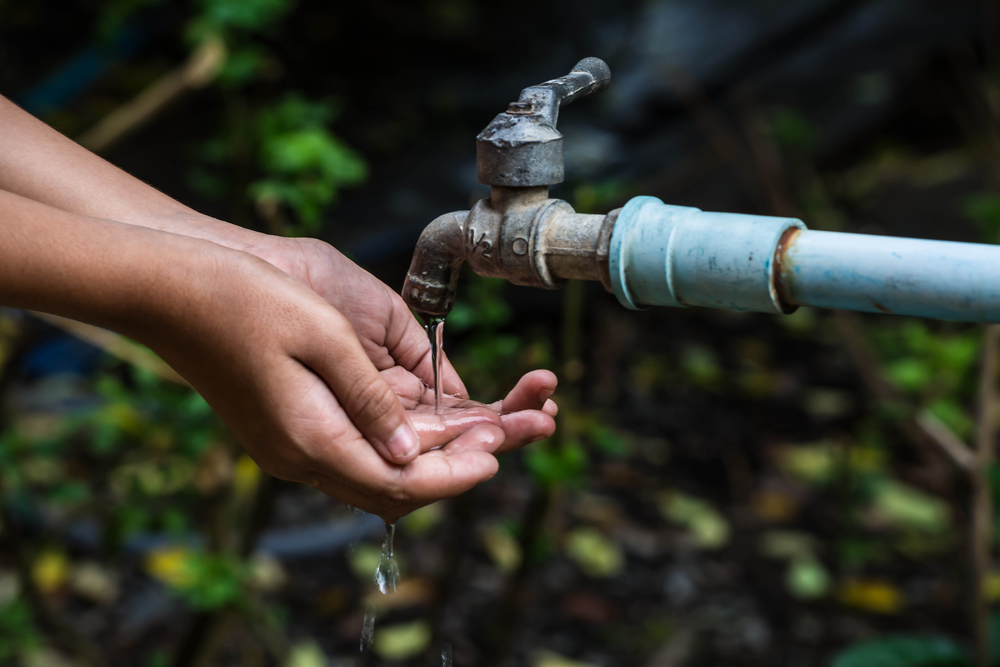Connecting Climate Change and Water Leak Management
The United Nations International Children’s Emergency Fund (UNICEF), and other organizations that address humanitarian and public health concerns most commonly cite scarcity as the largest water-related problem today. Estimates suggest that roughly half of the world’s people will lack access to an adequate source of fresh water by 2025. Meanwhile, another major emerging concern involves inadvertent water loss stemming from leaks, which is increasing carbon emissions and contributing to climate change.
Here in the U.S., a network of pipes spanning more than two million miles delivers water to the population. Unfortunately, much of this aging infrastructure for transporting water is crumbling and resulting in daily losses of an estimated six billion gallons of water. The need for effective water leak management is vital to sustaining the water supply and slowing its role in climate change.
Many U.S. households lose enough water each year to fill a large swimming pool, much of which results from leaking pipes, running toilets and dripping nozzles or spigots. Homeowners across the country can do their part by checking for water leaks to both reduce environmental harm and their water bills.
National Campaign to Heighten Awareness
The U.S. Environmental Protection Agency (EPA) remains at the forefront of a mission to solve this problem. The U.S. EPA WaterSense® program was established in 2006 and developed a “water efficiency” concept in response to the rapidly increasing demand for water among Americans.
The “Fix a Leak Week” program is now an annual, national event. This year is the 16th annual initiative, which takes place this year from March 18th through the 24th. Homeowners are encouraged to proactively address water leaks on their properties during Fix a Leak Week.
Some of the best practices being promoted in this year’s week-long event include:
> Looking for any indications of water loss by checking the water meter before and after a two-hour span when no water is used.
> Replacing any flappers in toilet tanks that are five or more years old.
> Tightening any connections to showerheads.
> Checking outdoor hoses and spigots for any leaks.
Based in California, Flume Water is an organization that is committed to water conservation and takes an active role during Fix a Leak Week each year. The Flume Smart Home Water Monitor represents a tremendous solution for property owners seeking to proactively stop water loss that harms the environment and might also cause structural failures, promote the growth of mold, and result in costly utility bills.
The Harmful Results of Unresolved Water Leaks
Preventing water loss from leakage is necessary for achieving conservation goals, reducing carbon emissions and helping to curtail climate change. Significant energy is needed to extract, pump, treat and heat water along our vast distribution networks. Water leaks make it necessary for these systems to work much harder to satisfy the expectations of many American consumers and result in a larger carbon footprint.
In many communities throughout the U.S., water is viewed as being a limitless commodity. To meet demand, companies in the water supply sector incur much higher costs, which ultimately creates a financial burden for their customers.
Aging pipe systems, which are largely underground, is an obvious concern, as water main “breaks” occur every day across the U.S. Here, adopting a comprehensive, multi-faceted approach is required.
Prompt reactionary measures are needed to repair major breaks in existing water lines. At the same time, the maintenance and replacement of existing water networks should remain a top priority. Fortunately, technological advancements in our society are making it easier to actively monitor systems and detect leaks.
The Positive Impact of These Efforts
Allocating financial resources to repairing and replacing timeworn water systems and deploying leak detection products are worthwhile investments. In most cases, these expenditures are recoverable by stopping the ongoing water losses, decreasing energy costs and helping utility companies who often face penalties (fines) for exceeding CO2 limits.
Individual households who implement water detection, monitoring and management systems may qualify for discount or rebate programs. For example, Flume Water has partnered with many residential water providers who now offer various financial incentives.
Water losses reduce the levels of lakes, reservoirs and rivers, which may result in elevated concentrations of pollutants that pose legitimate risks to human health. Additionally, these sustainable measures help to reduce the harm that is often endured by forms of wildlife and eliminate restrictions that prohibit recreational activity in natural, outdoor settings—which are typically exacerbated during periods of drought.
Efforts by national and international advocates and agencies along with governments at all levels are helping to conserve water, prevent unnecessary energy use, reduce carbon emissions and resist climate change. Individual homeowners can also now do their part to address these water-related challenges.
Today, American property owners have the opportunity to make a large impact by managing the water used in their homes. The water management options, such as those from Flume, available are affordable, simple to install and easily integrate with your phone or other mobile devices.
Resources used:
https://www.unicef.org/wash/water-scarcity# https://www.epa.gov/sites/default/files/2017-02/documents/ws-ourwater-falw-family-fact-sheet.pdf
https://waterfm.com/the-hidden-link-drinking-water-leakage-climate/# https://www.weforum.org/agenda/2023/01/davos23-water-security-scarcity-technology-science-leakages
